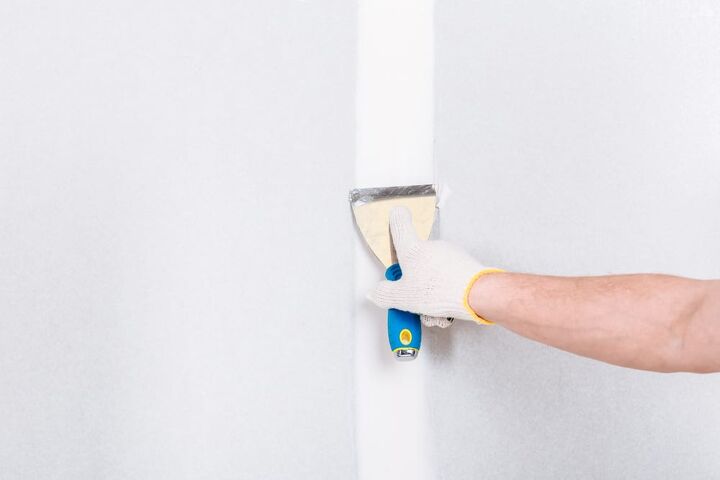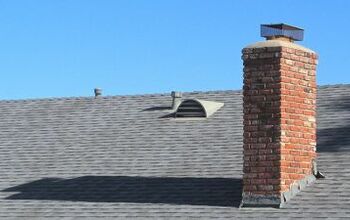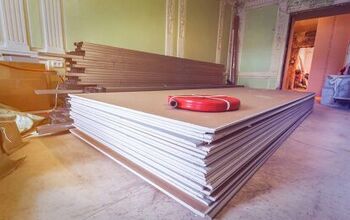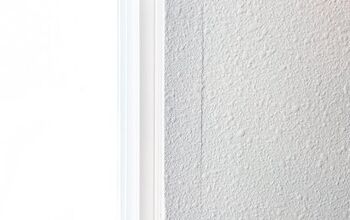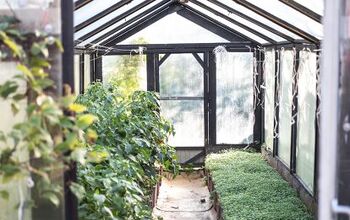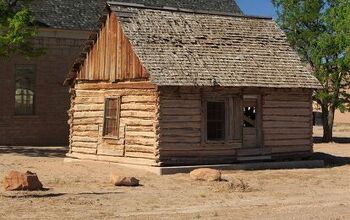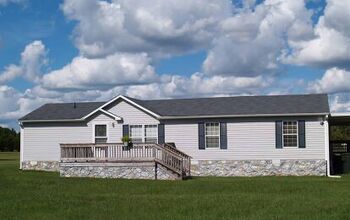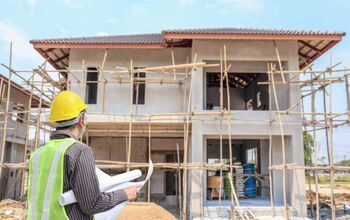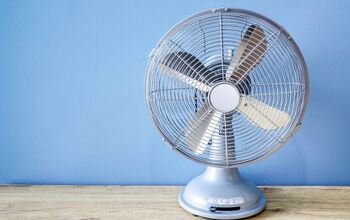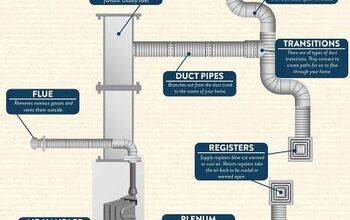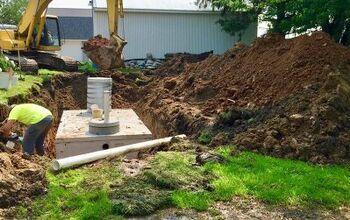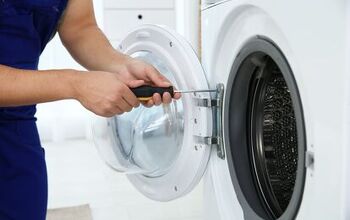How Much Does Drywall Repair Cost?

Drywall is a key element to any home, but it is easy to forget about unless there is a problem with it. However, when there is a problem, like a hole or unattractive cracks, you need to have your drywall repaired. It’s never fun spending money on repairs, but it’s necessary to keep your home livable and looking as great as it is.
The average drywall repair cost is $525, and labor costs an average of $75 per hour. Homeowners generally spend $67.50 per square foot to repair drywall, and small holes in drywall only cost $125 to repair. Drywall demolition costs $0.45 per square foot, and it costs $2.50 per square foot to replace it with new drywall.
Many do-it-yourself oriented builder owners choose to repair their own drywall and can spend $50 or less. It is well worth it to patch drywall as leaving it unfixed can hurt your chances of selling your home later on. Let’s take a deep dive into the cost of drywall repair.
Do You Need Drywall Repair Services?
Get free, zero-commitment quotes from pro contractors near you.

How Much Does Drywall Repair Cost?
Most homeowners spend roughly $500 or more for drywall repair, depending on severity and condition. The total cost of drywall repair is determined by the damage and how much ground it covers. It also depends on whether the professional charges you by the hour, or simply by the square foot.
You can expect big hole repairs to get a little costly, but small hole patches are generally quite cheap. Drywall repair can cost between $250 and $800, and many variables affect the final price. Common causes for drywall damage include moisture, pest damage, doorknobs, fallen furniture, and improper drywall installation.
Drywall Big Hole Repair
The bigger and wider the hole is, the more expensive drywall repair will be. Many builder-owners pay an average of roughly $75 per hour for drywall repair, but it varies based on professionals and region. Of course, bigger holes in drywall take longer to repair, and that means it’s more expensive.
Your professional may forego hourly rates and instead charge you by the square foot. Roughly $60 per square foot is common, but it can cost as much as $80 per square foot. Professionals can easily patch holes that are 6” or under, but bigger holes require more effort.
It can take 2-5 hours or more to repair a big hole in drywall. If your professional charges you by the hour, it could cost you between $150 and $375 for labor. Your professional may also charge you by the square foot, and 4 square feet of drywall could add an extra $240 to the cost, but square footage is sometimes in lieu of an hourly rate.
Drywall Small Hole Repair
Repairing small holes in drywall is quite common, and many homeowners have to do it at one time or another. You can usually expect a small hole in drywall up to 6” to take no more than 2 hours to repair. It can take longer if the drywall is hard to reach and there are obstacles.
Small holes in drywall can cost as little as $150 to repair, but many homeowners spend closer to $250. Additional costs such as painting can add another $100-$200 to total costs. You can also spend another $1.20-$1.50 per square foot for drywall texturing if need be.
Painting and texturing are not entirely necessary; however, it looks better than leaving a clear mark that damage happened. It could hurt you leaving the spot of the damage unpainted when you go to sell the house.
Replacing Drywall Cost
Sometimes, repairing drywall is simply not practical, and it needs to be replaced. Before drywall can be replaced, it needs to be removed and disposed of. It costs an average of $0.45 per square foot to demolish and remove the old drywall.
Removal and proper disposal of drywall can cost up to $400 but can cost more or less based on size. Replacing the old drywall with the new costs an average of $2.50 per square foot. If you replace 150 square feet of drywall, it can cost $375 for the replacement alone.
Add another $67 in removal to that cost for the same size room and replacing drywall can cost $442. Typically, if you need to replace drywall for an entire room, it is due to water damage. Otherwise, it could be that your drywall simply deteriorated due to fluctuations in temperature and humidity.
Drywall Ceiling Repair Cost
Repairing a drywall ceiling can get pricey, and typically costs $50 per square foot. That cost covers the labor and materials but can vary based on the structure of your house. You can tell something is wrong with the drywall in your ceiling if it is sagging due to its relative space to roof trusses.
Ceiling damage is not always as severe as sagging and can sometimes be as simple as holes and cracks. Just like all other drywall repairs, small drywall ceiling patches can cost as little as $100-$120 for simple cases.
However, if your ceiling damage is due to water, you can expect to incur more costs. You may need a mold inspection, which can cost between $300 and $1,000. If mold does show up, you could spend $1,000-$4,000 or more in addition to drywall ceiling repair.
Sheetrock vs. Drywall
Sheetrock and drywall are different in only one way, and that is cost. For example, a 4x 8 sheet of drywall costs $12-$16 but can cost as little as $7. Sheetrock generally starts out at $7 as well, and rarely costs more than $15 for a 4 x 8.
For the most part, sheetrock and drywall are the same thing and serve the same purpose. Sheetrock is really only a brand name for drywall, and it only really varies based on quality between brands. No matter what the brand is, drywall is simply gypsum plaster and paper that helps add fire resistance.
DIY Drywall Repair Cost
Repairing drywall on your own can save you money, but you’ll still have to spend. Luckily, however, your costs for DIY drywall repair only includes materials. How much material you need is determined by the size of the hole in question.
You can find 4 x 8 sheets of drywall for $12-$16, sometimes more, and that’s the main cost. For a small drywall repair job, you’d only need to spend between $12 and $32 on drywall sheets. Many savvy builder-owners can repair their own drywall for $50 or less.
There are several things that you need to have on hand for DIY drywall repair, including:
- Adhesive
- Screws
- Patch plaster
- Drywall and masking tape
- Drywall sheet (not always)
Patch plaster, screws, and tape can come out to $30-$40, or even less. For small holes, you may only need a small unit of adhesive, which can cost between $2 and $5. Otherwise, you can invest in a tub for $20 in the event of future drywall damage.
Cost To Patch Drywall
Drywall damage is sometimes minuscule, and all that you need is a little patch. If that is the case, then count yourself lucky, but you’ll still have to spend a little. Generally, small drywall patches cost an average of $60 each.
If you had 3 small holes in drywall, it could cost $150-$180 to patch. Holes that are worth patching are often caused by bumping into walls, slamming doorknobs, or fallen furniture. You can find drywall repair kits to patch it yourself for between $13 and $44 from Wall Patch and 3M, respectively.
You can also buy individual drywall patches for $5-$7, but you’ll need spackling or adhesive for $10-$12 at least. Joint compound and spackling are good for patching drywall, but spackling is best for patching because of its shrink resistance.
What Causes Drywall To Crack?
Cracks in drywall are caused by many things, but it is often due to humidity. Temperature and humidity play a big role in the lifespan of drywall. Even during installation, too much humidity can leave pockets of moisture in the drywall causing potential shrinkage.
You want your moisture level to be no more than 12% in drywall. When moisture comes out to be 17% or more, something is wrong, and it is no longer working effectively. Another common cause of cracks in drywall is improper installation and structural problems.
If the framing or drywall sheets themselves are not the right size, it can eventually cause cracks. Leaving drywall cracks unfixed is unsafe as it could potentially pose a structural threat. Even if there is no structural threat, you want to fix the cracks so that you can sell your house more easily.
How Do You Prevent Drywall Damage?
Preventing drywall damage is your best bet to save money on repeated drywall repair. Accidents happen, and drywall can be damaged at any time, but certain measures can mitigate risk. Your best bet to avoid one of the most common drywall damages is putting in a backing plate behind a door.
Slamming a doorknob into a wall is possibly the biggest cause for holes in drywall. Install a backing plate so that the knob does not make direct contact with the wall. Another common cause for drywall damage is pests, such as mice, and setting up mousetraps for $2-$13 each can reduce risk.
The biggest threat to drywall is water damage, so repair any leaks or damaged pipes right away. It costs an average of $250 to repair pipes with leaks or other damage. Also, try to mop up any water on the floor in event of spills so that it does not wick up into the wall and soak the drywall to prevent damage.
Related Questions
Do I have to replace drywall that got wet?
Yes, you need to replace drywall if it gets wet and stays wet. It is common for drywall to get wet when flooring is wet and replacing quickly is a great idea. Wet drywall is a perfect breeding ground for mold due to trapped moisture, and often dark surroundings.
How long does drywall repair take?
It can take as little as 1 hour for patching small holes in drywall. However, bigger jobs can take a full day or even several weeks. It all depends on the severity of the damage but repairing or replacing drywall throughout an entire house can 1-2 weeks.
How can you tell if drywall is bad?
The most obvious sign that you can look for is holes and cracks in the drywall or uneven drywall panels. Other things to look out for include exposed joints, nails, and screw holes that can clearly be seen. If the surface of the drywall is not smooth, or the corners are not even, it also suggests that it was improperly installed.
Can I patch drywall with joint compound?
Yes, you can patch drywall with joint compound, and in fact, it’s a great idea. Joint compound is commonly referred to as drywall mud, and it is ideal because of how smooth it comes out when it’s dry. Some builder-owners use spackling, but spackling is best used for small holes, and joint compound is great for large holes.
Do you have to use tape for drywall repair?
Yes, tape is an especially important part of drywall repair. If you don’t use tape, you run the risk of joints cracking. Tape helps secure whatever compound you choose to use for drywall repair, whether it be spackle or joint compound.
Do mice eat drywall?
Yes, mice eat and chew through drywall, and it is a common cause for both large and small holes. If you have mice in your home they may also chew through insulation, and any wood in the way. Using food bait and mousetraps for $2-$13 can help eradicate mice and protect your drywall.
Do You Need Drywall Repair Services?
Get free, zero-commitment quotes from pro contractors near you.

What Did We Learn?
Repairing drywall costs roughly $250-$800 based on the size of the hole, rate of laborer, and difficulty of the job. You can save $200-$750 by repairing drywall all by yourself, and your only costs are materials. However, if you incorrectly repair or replace drywall, it can lead to further cracking and holes that will need repair anyway.
If your drywall suffered water damage, it needs to be replaced, and can cost $775 or more for removal and replacement. Mold damage is another possibility and can add another $1,000-$4,000 in mold remediation costs.
If your drywall contains more than 17% moisture, it needs to be replaced and not repaired. Repairing drywall that needs fixing is worth it because failing do so look bad when selling. Either spend $50 on materials to do it yourself or call your local handyman or professional service for a quote.

Nick Durante is a professional writer with a primary focus on home improvement. When he is not writing about home improvement or taking on projects around the house, he likes to read and create art. He is always looking towards the newest trends in home improvement.
More by Nick Durante



